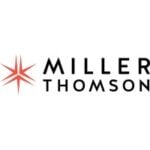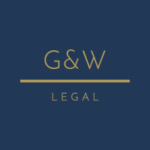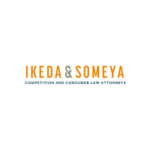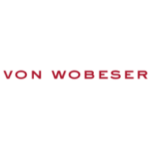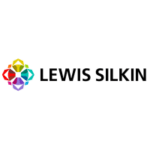-
Please provide a brief overview of the legal and regulatory framework governing advertising and marketing in your market. In particular, please explain if there is a self-regulatory system, a statutory system and/or ability for competitors or consumers to bring claims against advertisers.
In Germany, advertising is comprehensively regulated for all advertising media (television, radio, cinema, internet, print media, outdoor advertising, etc.) by a number of laws and regulations.
German advertising law is based on the one hand on the provisions of the Unfair Competition Act (UWG), the German Digital Services Act (DDG) and the General Data Protection Regulation (GDPR) – and on the other hand on the special media laws – the Interstate Media Treaty (Medienstaatsvertrag – MStV) and the Interstate Treaty on the Protection of Minors in the Media (JMStV).
- The UWG is the central law in advertising law and includes regulations on misleading advertising, comparative advertising, targeted obstruction of competitors and protection against unfair competition. It serves to ensure fair competition between companies and to protect consumers from unauthorised business practices.
- The DDG is the national law implementing Regulation (EU) 2022/2065 on a single market for digital services of the European Union in Germany. It regulates the obligations of service providers of digital services in Germany and thus the legal framework for electronic information and communication services, including online advertising.
- The GDPR is a Europe-wide data protection law that is also relevant for online advertising. It sets out the principles for the processing of personal data and ensures that the privacy of data subjects is protected.
- The MStV is an agreement between the federal states in Germany and regulates the legal framework for broadcasting and telemedia. It contains provisions on advertising in radio, television and telemedia, such as advertising restrictions and broadcasting time limits.
Regarding the enforcement of claims against advertisers, German law does not have a singular regulatory authority for advertising and marketing law. In terms of enforcing claims for breaches of various advertising regulations and laws, German law employs a mix of state and non-state regulation, typically organised by the industry itself.
- Breaches of the provisions of the UWG are generally asserted against advertisers by certain market participants (primarily competitors, consumers protection agencies, qualified professional associations, chambers of industry and commerce and other professional organisations)
- Breaches of specific regulations, such as the Interstate Media Treaty, are handled by the relevant authorities.
-
Please comment on how active the regulators are in your market, in practice, when it comes to regulating advertising and marketing.
As outlined in question 1, the enforcement of advertising and marketing regulations is primarily carried out by private entities, including consumers, competitors, or the “Wettbewerbszentrale”, an association focused on fair competition. Generally, in this field, the enforcement of advertising and marketing regulations in Germany is quite robust. The Wettbewerbszentrale, is particularly active in monitoring and addressing violations. But also, competitors and consumers play a significant role in identifying and reporting breaches.
Authorities such as the Federal Financial Supervisory Authority (BaFin), Germany’s integrated financial supervisory authority, are only involved in the enforcement of specific regulations, such as those relating to financial advertising.
-
Do different rules apply to different media (e.g. television broadcast, streaming, online, cinema, print, out-of-home, email marketing, etc)?
The Unfair Competition Act (UWG) and General Data Protection Regulation (GDPR) generally apply to all types of media. The following laws and regulations apply only to certain advertising media:
The German Interstate Media Treaty (MStV) focuses on the entire digital media world and regulates not only radio and television, but also telemedia, media platforms and media intermediaries. This includes online audio and video libraries, internet search engines, streaming providers and online social networks.
The regulations also set out rules for infomercials, virtual advertising, product placement, teleshopping, sponsorship and others. Online advertising must also be clearly recognizable as such and clearly separated from the other content of the offers. No subliminal techniques may be used in advertising. Also, there are regulations for the duration and placement of advertising on television.
The Interstate Treaty on the Protection of Minors in the Media (JMStV) also contains regulations on advertising in electronic information and communication media with regard to the protection of minors (see question 10).
-
Is it necessary to have advertisements pre-cleared/pre-approved in your market by a relevant authority, regulator or other body before they are published/broadcast, either generally or in relation to particular media, sectors, products, individuals/businesses, etc? If so, please provide a high-level overview.
In Germany, it is not necessary to obtain authorization from authorities, regulatory bodies or others before publishing advertising.
-
Focusing on misleading claims/marketing, please explain how these are regulated in your market.
The German Act against Unfair Competition (UWG) generally prohibits the use of unfair business practices. This also includes misleading statements such as misleading advertising. The law defines various actions that can be considered unfair business practices (but does not restrict them to specifically named actions).
The following types of commercial practices are considered unfair under the UWG:
- Violation of a statutory provision which is also intended to regulate market conduct in the interest of market participants (Section 3a UWG);
- Harming competitors by discrediting them, disseminating not demonstrably true facts about them, offering goods or services which are replicas of goods or services of a competitor in a unfair manner, or deliberately obstructing competitors (Section 4 UWG);
- Aggressive commercial practices (Section 4a UWG);
- Misleading commercial practices, also such by omission (Sections 5, 5a UWG)
- Unfair comparative advertising (Section 6 UWG);
- Unacceptable nuisance (Section 7 UWG).
Section 5 (1) of the UWG defines misleading commercial practices as unfair if they are likely to cause the consumer or another market participant to take a transactional decision that they would not have taken otherwise. According to para. 2, a commercial practice is misleading if it contains false statements or other misleading information about certain circumstances, e.g. the essential characteristics of the goods or services, such as availability, nature, design, benefits, risks, composition, accessories, method or timing of manufacture, delivery or performance, fitness for purpose, suitability for use, quantity etc. One example of a misleading commercial practice about the quantity of a product is deceptive packaging. Here, the targeted consumer is misled by the product containers into assuming a larger filling quantity than is actually the case. Further circumstances are listed in Section 5 UWG.
According to Section 5a (1) UWG, an advertisement may also be misleading if it omits material information that is necessary for an informed business decision, provided that the omission is likely to lead to a business decision that would not otherwise have been made.
-
How is advertising that is (or may be) harmful or offensive managed in your market?
In Germany, harmful and offensive advertising is covered by various provisions relating to different situations:
- Advertising that impairs respect for human dignity or contains or promotes discrimination on the grounds of gender, ethnicity, ethnic origin, nationality, religion or ideology, disability, age or sexual identity is prohibited under Section 8 (1) no. 1, 2 of the Interstate Media Treaty (MStV).
- Section 119 Administrative Offences Act (“Ordnungswidrigkeitengesetz” – OWiG) restricts grossly offensive and harassing acts. The offence is committed by anyone who publicly in a manner that is likely to harass others or in a grossly offensive manner by disseminating or making content available to the public offers, announces or promotes the opportunity for sexual acts or makes public statements about such content (Section 119 (1) OWiG). It is also an offence to offer, announce or advertise means or objects for sexual use in the manner described in paragraph 1 or to make statements of such content public or to make sexual content available to the public in places where this would be grossly offensive.
- As a general clause of the German Act against Unfair Competition (UWG), Section 3 UWG generally prohibits unfair commercial practices. This also includes advertising that violates human dignity, e.g. through humiliation, branding, persecution or ostracism. In the past, German case law has subsumed certain types of advertising under the general clause, e.g. advertising that uses the misery of those affected as a lure for its own economic advantage or that depicts the severe suffering of people or animals to arouse sympathy.
- According to Section 4a German Act against Unfair Competition (UWG), harmful and offensive advertising may also be prohibited as an aggressive business practice under Section 4a UWG. Such advertising must be suited to impair the freedom of choice of a consumer or other market participant through harassment, coercion, including the use of physical force, or undue influence by exploiting a position of power, so that the ability of the consumer or other market participant to make an informed decision is significantly restricted.
This may include advertising that creates a psychological compulsion to buy, e.g. when a consumer is initially given free gifts and feels obliged to buy out of gratitude.
-
Are there special rules, or is there special guidance, relating to price claims in your market, such as discounts, sales, limited offers? If so, please provide a high-level overview.
The Price Indication Ordinance (Preisangabenverordnung – PAnGV) plays an important role in the indication of prices. The ordinance regulates the form in which prices for commercial or business-related goods or services must be communicated to the end consumer. One of the purposes of the Price Indication Ordinance is to ensure comprehensive price truth and clarity. It should be easy for consumers to compare prices. For this reason, in Germanyprices must be stated as the final price including VAT. In the case of discounts, for example, the lowest total price of the last 30 days must be stated. Regarding advertising discounts, a judgment of the European Court of Justice (ECJ) from September 2024 is particularly interesting, in which the ECJ ruled a price reduction which is announced by a trader in the form of a percentage, or in the form of a promotional statement intended to stress the advantageous price of an offer, must be determined on the basis of the lowest price applied by the trader during a period not shorter than 30 days prior to the application of the price reduction (ECJ judgment of 26 September 2024, C-330/23 – Aldi Süd).
In addition to the PAnGV, the law against unfair competition must be observed when quoting prices in advertising. According to Section 5 UWG, advertising with prices can be misleading if companies provide incomplete or inaccurate price information or if the price calculation is incorrect.
Typical cases include price comparisons with competitors, manufacturer price recommendations, or own prices (price reduction advertising). For price reductions, the original price must have been charged for a reasonable period. Another typical group of cases are advertising offers with a discount price (the public perceives the discount price as significantly lower (by around 10 %) than the price otherwise charged on the market). These advertising offers can be misleading if prices are demanded that are not significantly below the price level of the competition.
-
How are misleading environmental claims regulated in your market? Are there special rules or is there special guidance relating to environmental claims in your market? If so, please provide a high-level overview.
Environmental advertising claims can be misleading as misleading commercial practices under Section 5 (2) No. 1 and Section 5a (1) of the German Act against Unfair Competition (UWG). Other regulations do not yet exist.
With growing awareness of sustainable consumption, advertising with the claim ‘climate neutral’ plays a role in court proceedings time and again. As a statement of a material fact within the meaning of unfair competition law, the claim must not be misleading according to the UWG and the company using the claim must provide information on why the product is climate neutral.
German courts regularly rule that advertising with the claim ‘climate neutral’ is misleading if it is achieved solely through CO2 compensation. This is because ‘climate neutral’ can be interpreted as ‘emission-free’, making it misleading. Even if companies clarify that their product is ‘climate neutral’ due to offsetting, German courts have ruled that this triggers information obligations under Section 5a (2) UWG.
-
What are the main sectors or product types where advertisements are either prohibited or tightly restricted (e.g. alcohol, tobacco/smoking, gambling, crypto, unhealthy food and drink). Please provide a high-level overview.
The German Unfair Competition Act (UWG) applies to certain products and services, as well as special advertising restrictions that are regulated in various provisions.
These provisions are intended to ensure consumer protection and prevent vulnerable groups, such as children and young people, from being negatively influenced by advertising.
Alcohol
Advertising for alcoholic products in the media is restricted by law. Legal restrictions can be found in:
- Section 6 (5) Interstate Treaty on the Protection of Minors in the Media (JMStV),
- Section 11 (5) German Youth Protection Act (JuSchG) and
- Section 8 (10) Interstate Media Treaty (MStV).
Alongside these regulations, the German Advertising Council (Werberat) has issued requirements for the advertising of alcoholic products as part of its advertising statutes, which are subject to voluntary self-regulation. Some television stations have also issued advertising guidelines (for alcoholic products, see section 3.2 of the ARD advertising guidelines).
The JMStV regulates broadcasting and telemedia (including social networks). According to Section 6 (5) JMStV, alcohol advertising in broadcasting and telemedia may not be directed at children and young people or appeal to minors through its presentation and may not show minors consuming alcohol.
Whether an advert is aimed at minors depends on the individual case. The design, the product and the language of the advert are particularly decisive in assessing the target group. Decisive criteria are the youth affinity of the advertised product (keyword: alcopops), the youthful presentation of the advert, youthful-looking influencers and general associations with the living conditions of minors. In addition, commercials or advertising programmes for tobacco products or alcoholic beverages may only be shown in cinemas after 6 p.m. (Section 11 (5) JuSchG).
Tobacco and related products
Advertising of tobacco and tobacco-related products is significantly restricted. Certain EU directives (e.g. 2003/33/EU and 2010/13/EU) as well as Sections 19 to 21 of the German Tobacco Products Act (TabakErzG) regulate the advertising of tobacco and certain related products very comprehensively.
The TabakErzG and the EU directives (2003/33/EU and 2010/13/EU) contain the following advertising prohibitions, among others:
- Prohibition of advertising in the press and other printed publications and on information society services (websites and social media), (Section 19 (1) (2) (3) TabakErzG)
- Prohibition of advertising on the Internet, (Section 19 (3) TabakErzG)
- Prohibition of advertising on advertising on radio and television, (Section 20 TabakErzG)
- Prohibition of sponsorship at events, (see Directive 2003/33/EU)
- Prohibition of outdoor advertising for tobacco products, e-cigarettes and refill containers (except in specialised shops), (Section 20a TabakErzG)
- Prohibition of the commercial free distribution of cigarettes, roll-your-own tobacco and water pipe tobacco (except in specialised shops), (Section 20b (1) TabakErzG)
- Prohibition of the distribution of tobacco products as prizes in competitions, (Section 20b (2) TabakErzG)
According to § 21 (1) TabakErzG, it is also prohibited to use information in advertising
- which creates the impression that the consumption or intended use of tobacco products is harmless to health or is suitable for favourably influencing the functioning of the body, performance or well-being,
- which by their nature are particularly likely to induce or encourage young people or adolescents to consume tobacco, which make the inhalation of tobacco smoke appear worthy of imitation,
- which give the impression that the ingredients are natural or pure.
Medicines, medical devices and surgical or medical procedures
The German Therapeutic Products Advertising Act (Heilmittelwerbegesetz – HWG) regulates the advertising of medical devices, medicinal products (medicine) and other therapeutic products and procedures in Germany.
According to Section 3 HWG misleading advertising is clearly prohibited.
Misleading advertising exists in particular:
- if medicinal products, procedures, treatments, objects or other means are attributed a therapeutic efficacy or effects that they do not have,
- if the impression is falsely created that success is to be expected with certainty or that no harmful effects will occur when used as intended or over a longer period of time, or
- if false or misleading statements are made about the composition or properties of medicinal products, articles or other means or about the nature and method of procedures or treatments or about the person, previous training, qualifications or performance of the manufacturer, inventor or the persons working or acting on their behalf.
In addition, Sections 3-13 HWG list numerous restrictions on health-related advertising. These include the advertising of prescription medicines only to healthcare professionals and not to consumers in Section 10 (1) HWG. Pursuant to Section 11 (1) no. 12 HWG the law also contains special regulations for the protection of minors, as advertising for medicinal products, procedures or treatments aimed exclusively or predominantly at children under the age of 14 is prohibited.
Gambling services
Advertising for gambling is only permitted to a limited extent in Germany. The regulations are governed by the Interstate Gambling Treaty (“Glücksspielstaatsvertrag��� – GlüStV) and depend on the risk potential of the specific gambling offer.
The advertising of games of chance is regulated in Section 5 GlüStV. In addition, advertising for unauthorised games of chance is prohibited and constitutes a criminal offence (see Section 284 (4) of the German Criminal Code – StGB).
To operate a gambling establishment, the operator requires a proper licence from the competent state authority in accordance with Section 4 GlüStV. Only if the gambling operator has obtained the licence may he or she advertise and promote the permitted games of chance (Section 5 (1) sentence 1 GlüStV). The licence specifies the content and ancillary provisions regarding the design of advertising for public games of chance, in particular on television and the Internet, as well as the mandatory information. Advertising via telecommunications systems is prohibited without the consent of the player or person interested in gambling. Section 5 (2) to (7) GlüStV contains further advertising restrictions such as the ban on advertising illegal gambling.
Advertising may also not be directed at minors or similarly vulnerable groups (see Section 5 (3) GlüStV).
-
Are there special protections for children? If so, please provide a high-level overview.
In Germany, advertising for children and young people is subject to special legal regulations. The legal basis for these regulations can be found in the Interstate Treaty on the Protection of Minors in the Media (“Jugendmedienstaatsvertrag” – JMStV) of 14 December 2021, which is supplemented by the German Youth Protection Act (JuSchG).
In addition to offers in the media that are generally prohibited for reasons of the protection of minors, the treaty regulates the protection of minors in advertising and teleshopping in Art. 6.
- 6 (1) JMStV
Advertising for content that is indexed in accordance with Sections 18 and 24 of the German Protection of Young Persons Act (such as immoral, brutalising media that incite violence, crime or racial hatred) is only permitted under the conditions applicable to the respective content itself. In addition, the list of indexed content (see Section 18, 24 JuSchG) may not be distributed or made available for advertising purposes. Nor may any reference be made in advertising to pending or completed proceedings for the inclusion of content or a data carrier with similar content in the list in accordance with Section 18 JuSchG (List of Media Harmful to Young Persons). This also applies to carrier media (cf. Section 15 (5) JuSchG).
- 6 (2) JMStV
Advertising must not harm children and young people either physically or emotionally, nor shall it
- contain direct appeals to children or young people to buy or hire goods or services which children or adolescents that exploit their inexperience and credulity,
- directly encourage children or young people to persuade their parents or third parties to purchase the advertised goods or services,
- exploit the special trust that children or young people have in parents, teachers and other persons, or persons, or
- show children or young people in dangerous situations without a legitimate reason.
Further circumstances are mentioned in Section 6 JMStV.
-
Are there particular rules or restrictions relating to unhealthy food and drink, such as ‘junk food’? If so, please provide a high-level overview.
In Germany, no legal regulations have yet been issued for foods with a high fat, salt and sugar content.
Instead, the government is endeavoring to achieve protection from such foods through voluntary commitments. To promote healthy eating, the German government is pursuing a so-called nutrition strategy. Among other things, this is intended to provide less meat and sugary foods and more fruit and vegetables in daycare centers and canteens.
-
Are there particular rules or restrictions relating to influencer marketing? If so, please provide a high-level overview.
Most of the rules and restrictions relating to influencer marketing in Germany are based on recent case law of the Federal Court of Justice, which applied the general advertising and transparency rules to the particularities of influencers. The case law was in part implemented in German law:
Section 5a (4) German Unfair Competition Act (UWG) plays a central role in the regulation of influencer marketing. This provision was developed by the German legislator based on current case law on influencer marketing, in particularly concerning the labelling obligations for influencers.
Section 5a (4) UWG regulates all commercial communication, including advertising by influencers and brand ambassadors. It mandates that influencers disclose the commercial purpose of their posts if it is not immediately apparent and could influence consumer decisions. A commercial purpose does not exist if the influencer receives no remuneration or promise from the third-party company.
Influencers therefore must label posts as advertising for paid partnerships, free products, discounts, or other benefits. Labelling is not required only if influencers pay for the products themselves, there is no advertising surplus, and the commercial purpose is clear. For lesser-known influencers with few followers, this is rarely the case, so posts should be labelled as advertising when in doubt.
-
Do influencers require a licence, permit or other official permission before they can operate in your market as advertisers/marketers/brand ambassadors or similar?
In Germany, influencers do not generally require a specific licence, permit, or official permission to operate as advertisers, marketers, or brand ambassadors. However, there are exceptions in particular sectors, i.a. for financial services for the so called “Finfluencer”, see § 86 German Securities Trading Act (WpHG).
-
What are the main or most common IP considerations advertisers should keep in mind in your market?
Advertisers should be mindful of intellectual property law, particularly trade mark, patent, design and copyright law, as part of advertising and marketing strategies. These areas are important tools that play a role in protecting one’s own rights but also in avoiding infringement of third-party rights.
Trademark Law
When developing an advertising campaign, it is advisable to register the central symbol under trade mark law. This can be achieved by registering a German trade mark with the German Patent and Trade Mark Office (DPMA) or a European Union trade mark with the European Union Intellectual Property Office (EUIPO).
Not only product names but also slogans, logos, colours, colour sequences, or sound sequences can be protected if they distinguish a company’s goods or services. Signs that are purely descriptive or determinative are excluded from protection.
To prevent competitors from launching a similar product on the market, it is advisable to register the trade mark before the product launch, as the priority principle grants rights to the first registrant.
From a trade mark law perspective, it is also important to check for existing third-party rights to avoid infringement. These can arise, for example, from the infringement of trade mark rights or from the infringement of a company sign.
Design Law
Designs are external forms of creation like coffee pots, fabric patterns, cars, computers, and furniture. A product’s design is crucial for market success, making design registration important for product promotion and marketing.
The Act on the Legal Protection of Designs (“Designgesetz”) protects designs that are new and have individual character.
The term ‘Individual character’ means the design gives an overall impression to an informed user that differs from any prior design.
Copyright Law
In principle, practically all advertising works can be protected by copyright. This includes advertising texts, slogans, photographs, posters, labels, plastic figures, packaging, brochures, films, melodies, etc.
If a marketing or advertising campaign contains creative works such as music, graphics or photos, these elements are protected by copyright. Third parties may therefore not simply use these works without the author’s consent. At the same time, companies must ensure that they obtain full authorization from all authors and creatives involved for the specific use of these works in their campaigns to avoid committing copyright infringements themselves.
-
Is comparative advertising permitted in your market? If so, please provide a high-level overview.
The German Unfair Competition Act (UWG) defines comparative advertising in Section 6 (1) UWG as ‘any advertising that directly or indirectly makes a competitor or the goods or services offered by a competitor recognisable’.
In Germany, comparative advertising is no longer prohibited per se. According to Section 6 (2) UWG, comparative advertising is only unfair if
- the comparison does not relate to the same goods or services for the same needs or the same purpose,
- does not objectively refer to one or more essential, relevant, verifiable and typical characteristics or the price of these goods or services,
- leads to a likelihood of confusion in the course of trade between the advertiser and a competitor or between the goods or services offered by them or the trade marks used by them,
- takes unfair advantage of, or is detrimental to, the reputation of the trade mark used by a competitor,
- disparages or denigrates the goods, services, activities or personal or business circumstances of a competitor, or
- presents a product or service as an imitation or replica of a product or service marketed under a protected trade mark.
For some goods and services, other national or EU regulations prohibit comparative advertising. For instance, the German Drug Advertisement Act (HWG) stipulates public advertising of medicinal products from suggesting that their effect is equivalent or superior to another treatment or medicinal product.
-
Are there particular rules relating to ‘image rights’ in your market that advertisers should be aware of?
When using image rights, advertisers should observe copyright law (see question 14) as well as the personal rights of those depicted and data protection law.
In German law, the right to one’s own image is protected by Sections 22 and 23 of the German Art Copyright Act (“KunstUrhG”). The right is based on the fundamental right of the general right of personality according to Art. 2 (1) in conjunction with Art. 1 (1) of the German constitution (“Grundgesetz” – GG).
- Section 22 KunstUrhG stipulates that images may only be distributed or publicly displayed with the consent of the person depicted.
- Section 23 KunstUrhG, on the other hand, regulates when images may be displayed without the consent of the person depicted. This is the case, for example, with portraits of contemporary history or with images of meetings, processions and similar events in which the persons depicted have taken part.
An image in an advertisement may therefore infringe the right to one’s own image and thus also the general right of personality of the person depicted if no consent has been given and none of the exceptions under Section 23 KunstUhrG are fulfilled.
In addition, the regulations GDPR and the new Federal Data Protection Act (BDSG) must also be complied with when used in advertising, as photos and videos of people are also personal data.
-
Are there rules relating to perpetuating potentially harmful stereotypes, such as gender stereotypes, racial stereotypes, religious stereotypes, and so on in your market? If so, please provide a high-level overview.
In Germany, there are currently no specific rules that prohibit the use of potentially harmful stereotypes in an unauthorised manner. However, the fundamental laws (e.g. German Unfair Competition Act) are applicable in this context as well. Specifically, the rules against harmful or offensive advertising must be adhered to (see question 6).
-
What has been the main impact AI has had on the advertising and marketing content and regulation in your market so far, and what impact is it likely to have in the coming year or two?
AI is significantly impacting advertising and marketing in Germany. Its applications range from creating advertising ideas and designing materials to replacing human actors in commercials, customer segmentation, personalising ads, and optimising advertising plans.
The European AI Regulation (AI Act) provides the legal framework. One impact is the obligation to label AI-generated content in advertising. For instance, Article 50 of the AI Act requires transparency for AI systems, ensuring users are aware they are interacting with AI. This is particularly relevant for AI-based chatbots in advertising.
AI also affects German copyright law. Using AI with third-party works may infringe copyrights. A distinction is made between training data (input) and results (output). If input contains copyrighted works, they may be protected, and reproducing this data might require authorisation. However, there are exceptions if data available on the internet is read out for the purpose of text and data mining. Under German law, however, protection for AI-generated output is limited as AI products are new creations based on training data, not personal intellectual creations protected by copyright law. If the AI output therefore lacks copyright-protected parts, there is no apparent infringement of third-party copyrights.
-
Are regulators in your market currently utilising AI or new technologies in their regulatory activities in your market?
We are not aware whether German regulatory authorities are currently using AI in their activities. German authorities are more restrictive in their use of AI than companies in the private sector. However, it can be assumed that the use of AI in the area of regulation will increase.
-
What are the main hot topics, challenges and opportunities facing advertisers in your market (now or in the near future) from a legal/regulatory point of view? Also, there any significant updates or changes to the law, rules, sanctions, regulators or anything else due in your market in the near future that readers should keep in mind?
The following legal regulatory issues will play a role in the advertising landscape in the future:
- One of the foremost challenges is ensuring compliance with data privacy regulations such as the General Data Protection Regulation (GDPR). Advertisers must obtain proper consent for data collection and usage, which can be complex and resource-intensive.
- As AI becomes more capable of generating creative content, questions around intellectual property (IP) rights arise. Who owns the content created by AI? Advertisers need to be aware of the evolving legal landscape regarding AI-generated content and ensure that they have the appropriate rights and permissions to use such content in their campaigns. Misappropriation of IP can lead to legal disputes and financial liabilities.
Two things to keep an eye on are the ‘Consumer Empowerment for the Green Transition Directive’ (EmpCo-Directive) and the draft of the Green Claims Directive. These directives are intended to prevent misleading marketing with reference to environmental statements and greenwashing in the EU.
Germany: Advertising & Marketing
This country-specific Q&A provides an overview of Advertising & Marketing laws and regulations applicable in Germany.
-
Please provide a brief overview of the legal and regulatory framework governing advertising and marketing in your market. In particular, please explain if there is a self-regulatory system, a statutory system and/or ability for competitors or consumers to bring claims against advertisers.
-
Please comment on how active the regulators are in your market, in practice, when it comes to regulating advertising and marketing.
-
Do different rules apply to different media (e.g. television broadcast, streaming, online, cinema, print, out-of-home, email marketing, etc)?
-
Is it necessary to have advertisements pre-cleared/pre-approved in your market by a relevant authority, regulator or other body before they are published/broadcast, either generally or in relation to particular media, sectors, products, individuals/businesses, etc? If so, please provide a high-level overview.
-
Focusing on misleading claims/marketing, please explain how these are regulated in your market.
-
How is advertising that is (or may be) harmful or offensive managed in your market?
-
Are there special rules, or is there special guidance, relating to price claims in your market, such as discounts, sales, limited offers? If so, please provide a high-level overview.
-
How are misleading environmental claims regulated in your market? Are there special rules or is there special guidance relating to environmental claims in your market? If so, please provide a high-level overview.
-
What are the main sectors or product types where advertisements are either prohibited or tightly restricted (e.g. alcohol, tobacco/smoking, gambling, crypto, unhealthy food and drink). Please provide a high-level overview.
-
Are there special protections for children? If so, please provide a high-level overview.
-
Are there particular rules or restrictions relating to unhealthy food and drink, such as ‘junk food’? If so, please provide a high-level overview.
-
Are there particular rules or restrictions relating to influencer marketing? If so, please provide a high-level overview.
-
Do influencers require a licence, permit or other official permission before they can operate in your market as advertisers/marketers/brand ambassadors or similar?
-
What are the main or most common IP considerations advertisers should keep in mind in your market?
-
Is comparative advertising permitted in your market? If so, please provide a high-level overview.
-
Are there particular rules relating to ‘image rights’ in your market that advertisers should be aware of?
-
Are there rules relating to perpetuating potentially harmful stereotypes, such as gender stereotypes, racial stereotypes, religious stereotypes, and so on in your market? If so, please provide a high-level overview.
-
What has been the main impact AI has had on the advertising and marketing content and regulation in your market so far, and what impact is it likely to have in the coming year or two?
-
Are regulators in your market currently utilising AI or new technologies in their regulatory activities in your market?
-
What are the main hot topics, challenges and opportunities facing advertisers in your market (now or in the near future) from a legal/regulatory point of view? Also, there any significant updates or changes to the law, rules, sanctions, regulators or anything else due in your market in the near future that readers should keep in mind?

